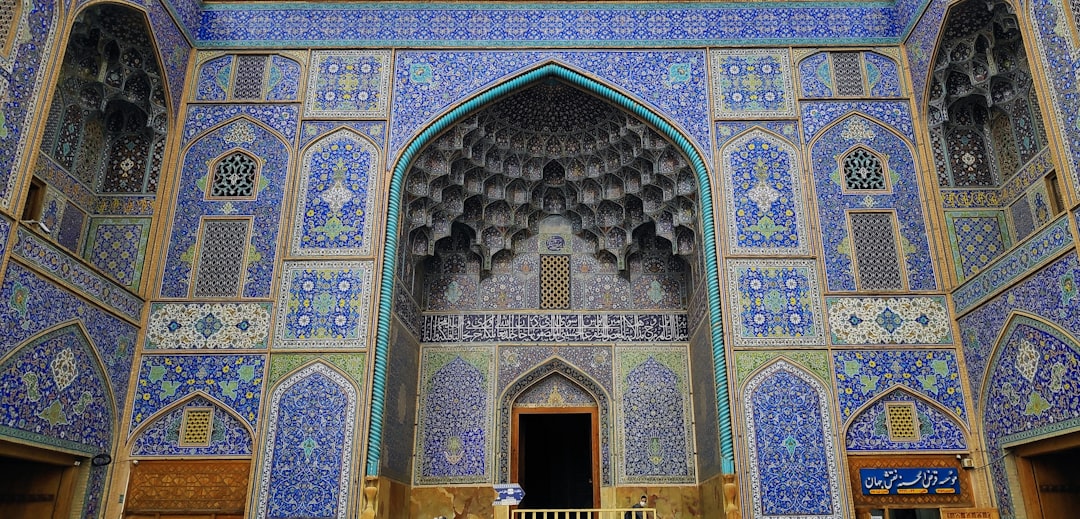In Persian mystic literature, few themes are as enduring as ghurba — estrangement. It is the ache of the soul that has fallen from its homeland of light and now wanders in the dust of separation. Hafez, the poet who made the music of longing immortal, captured this feeling in many of his ghazals, but nowhere more gently than in the poem that begins:
“Goftam ey sultan-e khuban, rahm kon bar in gharib.”
I said: O King of the Beautiful, have mercy on this stranger.
Here, Hafez speaks as both lover and pilgrim. The Beloved is “Sultan,” a word that suggests not only beauty but sovereignty — a being whose mere glance commands devotion. Yet the poet introduces himself not as a hero of passion, but as gharib — a stranger, a lonely soul exiled from the beloved’s court. From this single contrast between “Sultan” and “Gharib,” the whole ghazal unfolds: the majesty of divine beauty and the humility of the human heart.
1. Mercy and Misguidance
گفتم ای سلطان خوبان رحم کن بر این غریب
گفت در دنبال دل ره گم کند مسکین غریب
I said: O King of the Beautiful, have mercy on this stranger.
He said: Whoever follows the heart, poor soul, will lose the way.
This exchange is both tender and devastating. The lover pleads for compassion, but the Beloved replies that losing the path is the very nature of one who follows love. In mystical language, the “heart” (del) is the compass to God — but it is also the cause of bewilderment, for the path of love has no map. The “stranger” here is every human being who listens to the heart’s call and thus becomes lost to the world’s logic.
To follow the heart, Hafez reminds us, is to become gharib: detached from comfort, convention, and belonging. This “loss” is not punishment but initiation — the beginning of the lover’s real journey.
2. The Unstoppable Departure
گفتمش مگذر زمانی گفت معذورم بدار
خانه پروردی چه تاب آرد غم چندین غریب
I said: Stay a moment, do not leave.
He said: Forgive me — those raised in palaces cannot bear the grief of such a stranger.
Here, the poet imagines the Beloved as a royal being, nurtured in ease, unable to dwell in the pain of mortal hearts. It is an image both ironic and compassionate. The Beloved is blameless, for sorrow belongs to those who love, not to those who are loved. In divine allegory, this line suggests that the Eternal does not change or suffer — it is we, the finite lovers, who burn.
Hafez’s words capture a truth of all human experience: those who have never known exile cannot understand its ache. The “house-born” — those sheltered by certainty — cannot feel what it is to wander.
3. The Contrast of Comfort and Pain
خفته بر سنجاب شاهی نازنینی را چه غم
گر ز خار و خاره سازد بستر و بالین غریب
What sorrow can touch a delicate one who sleeps on royal furs,
While the poor stranger makes his bed from thorns and stones?
This verse sharpens the divide between comfort and hardship, but beneath it lies irony. The Beloved’s perfection isolates them — they dwell in untroubled majesty — but the lover’s pain becomes his crown. To sleep on “thorns and stones” is to experience life stripped of illusion. Every discomfort becomes a proof of devotion.
In mystical interpretation, this line speaks of the soul’s night of longing. The Beloved — God, truth, or beauty — remains untouched by suffering, yet the lover’s pain is the path to vision.
4. The Stranger Among the Tresses
ای که در زنجیر زلفت جای چندین آشناست
خوش فتاد آن خال مشکین بر رخ رنگین غریب
O you whose dark curls hold so many familiar souls in their chains,
How well that beauty spot has fallen upon your rosy cheek, O stranger!
Here, Hafez’s imagery blooms in sensual precision: the tresses (zolf), the beauty mark (khal), the rosy face (rokh-e rangin). Each is a world of symbolism. The curls represent the veils of mystery — the thousand entanglements of desire and illusion. The mole, the dark spot on the luminous face, is the paradox of divine beauty: perfection adorned with a mark of mortality.
The poet calls even the Beloved “gharib” — a stranger — for beauty itself is elusive, never wholly known. The meeting of the dark mole and the bright cheek mirrors the meeting of sorrow and joy, the lover and the beloved, the human and the divine.
5. The Wine’s Reflection
مینماید عکس می در رنگ روی مهوشت
همچو برگ ارغوان بر صفحه نسرین غریب
The reflection of wine shines from your moonlike face,
Like a redbud leaf fallen upon the pale page of a wild rose — a wondrous stranger.
This is pure painterly Hafez — color, light, and metaphor fused. The wine’s red reflection upon the Beloved’s face creates a scene of intoxication and wonder. The lover sees divinity shimmering through beauty, just as light glows through wine.
But there is also distance: the “stranger” quality of this beauty. The reflection, like love itself, is fleeting — it appears, glows, and vanishes. The wine and the face, the red and the white, echo the mystical dualities of fire and light, passion and purity.
6. The Wandering Line
بس غریب افتاده است آن مور خط گرد رخت
گرچه نبود در نگارستان خط مشکین غریب
How strangely that line of hair has wandered about your face,
Though in the garden of beauty no musk-dark line was ever so rare.
The “ant of the line” (mor-e khat) is a metaphor for the fine dark trace of hair that often frames the face in Persian beauty imagery. Yet here it becomes an emblem of exile itself — the dark, wandering line, far from its origin, circling the luminous face.
In another reading, the “line” is the written word — the poetry of longing traced upon the Beloved’s cheek. Hafez’s verse turns the smallest detail of beauty into a revelation: exile exists even within perfection, for beauty too is restless.
7. The Night of the Stranger
گفتم ای شام غریبان طره شبرنگ تو
در سحرگاهان حذر کن چون بنالد این غریب
I said: O night of the strangers, O your tresses dark as pitch,
Take care at dawn — for when this stranger cries, even the morning trembles.
The night of separation (sham-e gharibān) is a recurring motif in Hafez: the long vigil of absence, the endless waiting before the dawn of reunion. Here, the Beloved’s black hair becomes that night itself. The poet warns it — perhaps with irony — that his lament at dawn might tear even the veil of darkness.
It is a moment of supreme emotional music: grief turned into power, weakness into song. The lover’s cry is not despair but invocation; it calls the light.
8. The Last Reflection
گفت حافظ آشنایان در مقام حیرتند
دور نبود گر نشیند خسته و مسکین غریب
He said: Hafez, even the familiar ones are lost in bewilderment.
It is no wonder if the poor stranger sits weary and alone.
The final line reveals the poem’s secret: estrangement is universal. Even the ashnayan — the intimates, the saints, the enlightened — are bewildered before the infinite. Thus, the “stranger” is not cursed but chosen. Bewilderment (hayrat) is the highest spiritual station, where knowledge dissolves and only love remains.
The ghazal ends not in despair but in acceptance. The lover’s exile becomes his identity, his seat of humility before the mystery of being.
Love as Exile, Exile as Home
Throughout this ghazal, the word gharib resounds like a refrain — a bell tolling softly through each couplet. For Hafez, to be gharib is not merely to be unloved; it is to stand on the edge of the visible world, gazing toward the unseen. The stranger is the seeker who has left behind the familiar, who has followed the heart even though “it loses the way.”
In Persian mysticism, this estrangement is not tragedy but transformation. The Prophet himself said, “Islam began as something strange, and it will return to being strange — blessed are the strangers.”
Hafez inherits that wisdom: the path of love always leads through exile. The one who is most lost may, in truth, be closest to home.
Beauty and Distance
One of Hafez’s great gifts is to portray love as both bliss and boundary. The Beloved’s beauty is perfect, yet unreachable. The poet’s tone moves between awe and irony — the majesty of “sultan-e khuban” and the self-effacing “maskin gharib.” Every attempt to grasp the Beloved ends in another recognition of distance, yet that distance itself becomes luminous.
In this ghazal, beauty does not comfort; it awakens longing. Every image — the tresses, the mole, the reflection of wine — is both invitation and reminder: what you love is not yours to possess. You may only reflect it, like wine shining in the cup.
The Art of Tenderness
Though full of philosophical depth, this ghazal is also tenderly human. The dialogue between the lover and the Beloved feels like an intimate conversation: the lover pleading, the Beloved answering with a smile of divine irony. Each exchange holds the rhythm of unrequited love, yet within it lies compassion. The Beloved’s refusals are not rejections but revelations — each one guiding the lover deeper into the secret of love.
The Ghazal as Mirror
Every verse in this poem reflects both sides of the mirror — the human and the divine. The “stranger” is not only Hafez himself, nor merely a lover bereft of his beloved. It is the soul of every person who feels the ache of beauty, who seeks meaning beyond the visible, who cannot rest in ordinary comfort.
And thus, the poem turns inward: Who among us is not a stranger here?
Conclusion — The Grace of Bewilderment
At the end of his song, Hafez accepts his estrangement as grace. If even the “familiar ones” — the saints and the wise — remain in bewilderment before the Beloved, then how could the poor stranger hope for more? The path of love does not end in knowledge but in wonder.
This ghazal, then, is a map of losing one’s way — a chart of sacred bewilderment. Its message, distilled, is simple:
To love is to be lost.
To be lost is to be found.
To be a stranger before the Beloved is the only true home.
English Rendering of All Verses (for reference)
-
I said: O King of the Beautiful, have mercy on this stranger.
He said: Whoever follows the heart, poor soul, will lose the way. -
I said: Do not pass by so quickly.
He said: Forgive me — those raised in comfort cannot bear such sorrow. -
What sorrow can touch the one who sleeps upon royal furs,
While the poor stranger lies upon thorns and stones? -
O you whose dark curls imprison so many hearts,
How well that black mole rests upon your radiant cheek, O stranger! -
The reflection of wine glows from your moonlike face,
Like a crimson leaf upon a pale rose — wondrously strange. -
That ant-like line has wandered strangely upon your face,
For never was a darker beauty seen in the garden of grace. -
I said: O night of exile, O your jet-dark hair,
At dawn take care, when this stranger begins to weep. -
He said: Hafez, even the wise are lost in bewilderment
No wonder the weary, poor stranger sits apart.





